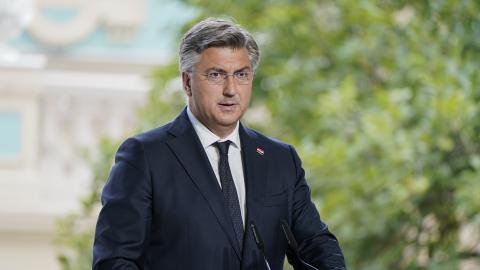A uthor Jonathan Schell is best known for The Fate of the Earth (1982), a book written during the brief period in the Cold War when the Soviets seemed to be winning. There he argued that the West was morally obligated to forgo nuclear deterrence. In his new book, The Unconquerable World, Schell argues that the era of war has ended in world history. The future, he says, belongs to structures of peaceful cooperation among the worlds peoples, requiring changes that will redefine political sovereignty. Schells new argument is in every way more sophisticated and interesting than the one in his earlier book, and The Unconquerable World is a valuable formulation of the growing transnationalist movement. Nonetheless, Schells new proposals, if put into effect, would be quite as catastrophic for America and the West as his earlier ones would have been.
uthor Jonathan Schell is best known for The Fate of the Earth (1982), a book written during the brief period in the Cold War when the Soviets seemed to be winning. There he argued that the West was morally obligated to forgo nuclear deterrence. In his new book, The Unconquerable World, Schell argues that the era of war has ended in world history. The future, he says, belongs to structures of peaceful cooperation among the worlds peoples, requiring changes that will redefine political sovereignty. Schells new argument is in every way more sophisticated and interesting than the one in his earlier book, and The Unconquerable World is a valuable formulation of the growing transnationalist movement. Nonetheless, Schells new proposals, if put into effect, would be quite as catastrophic for America and the West as his earlier ones would have been.
According to the author, a dialectic has been running through history, between the two ethics expressed by the near-contemporaries Virgil and Jesus. Virgil, as Schell sees it, sang of arms and the man, of the use of force as the final arbiter in the worlds affairs. Schell notes that Jesus, by contrast, advised his followers to put away the sword entirely, warning that those who lived by it would die by it. These ideologies underlay the distinction between realism and idealism, public and private, even between state and church. In the twentieth century, the author argues, these ideologies developed into theoretical maxims, at which point their meanings were inverted: war became peace by becoming too terrible to use, while peaceful cooperation became the only possible realism.
Lets start with war. The author gives a great deal of attention to nineteenth-century military theorist Carl von Clausewitzs (variously formulated) dictum that war is politics conducted by other means. The problem is that, although governments wage war to change the enemys behavior, war has a logic of its own. For example, absolute war, the ideal of maximum lethality, would leave a desert with no one to surrender. Absolute war conducted by both sides would destroy both combatant societies. This theoretical limit was realized in the twentieth century, when nuclear weapons appeared. The advent of these weapons, however, necessitated the development of strategic deterrence, which had the effect of etherealizing violence. Actual destruction of people and things was increasingly replaced by attacks on the enemys morale.
Much the same happened on the conventional level, with the development of nonviolent resistance, and of what Schell calls Peoples War. Essentially, insurgents around the world, both peaceful and violent, found that they could overcome overwhelming military force by patiently eroding the oppressors will to coerce. The author tells us that this antithesis of conventional war achieved universal success by the end of the twentieth century:
The self-determination movement cut across all political dividing lines. No political system, feudal or modern, proved capable of resisting it. Neither monarchies (the Romanovs, the Hapsburgs, the Hohenzollerns, the Ottomans, Spain) nor military dictatorships (France under Napoleon,

















